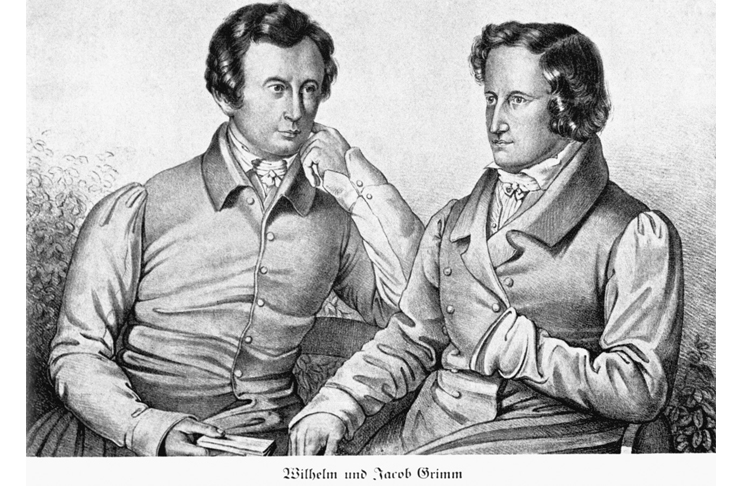Jeremy Butterfield (the former editor-in-chief of Collins dictionaries) has written recently about nursey rhymes, and how they teach the basics of English to small children. We can define a nursery rhyme as ‘a simple or traditional poem or song for small children’. Butterfield says they teach young children about rhyme, word order, vocabulary, verbal reduplication, alliteration and assonance. All of which is pretty straightforward (and very good for little kids). But then Jeremy adds that nursery rhymes also teach the ‘Unwritten Immutable Law of Ablaut Reduplication’ – and that is something that needs a bit of explanation. Ablaut is a word coined by Jacob Grimm. We know him (and his brother Wilhelm), as the Brothers Grimm – the source of many traditional fairy tales. But the Grimms were also pioneering language researchers, and Jacob coined ablaut to name the way vowel sounds change in some words – for instance in irregular verbs such as ‘sing, sang, sung’ or ‘swim, swam, swum’. And here is his Unwritten Immutable Law of Ablaut Reduplication – which says that in such words the vowels will always change in this order – i,a,o: ‘In other words,’ (Jeremy Butterfield writes), ‘a short i sound can be followed by an a or an o, but it absolutely has to be in that order. Hence mishmash not mashmish and shilly-shally, not shally-shilly, on one hand, and flip-flop and hip-hop, not flop-flip and hop-hip on the other. That also explains why the nursery rhyme runs Hickory Dickory Dock and not Hockory Dockory Dick. And if you have all three sounds, they absolutely must go in the order i then a then o.’ Why does it run in this order? Jacob Grimm didn’t really explain why, just that this order is a linguistic fixture in Germanic languages (such as English). And the only thing to add is that Jeremy Butterfield can explain language so that even those of us without his vast learning can understand! Bing, bang, bong!
Got something to add? Join the discussion and comment below.
Get 10 issues for just $10
Subscribe to The Spectator Australia today for the next 10 magazine issues, plus full online access, for just $10.
Contact Kel at ozwords.com.au
You might disagree with half of it, but you’ll enjoy reading all of it. Try your first month for free, then just $2 a week for the remainder of your first year.














Comments
Don't miss out
Join the conversation with other Spectator Australia readers. Subscribe to leave a comment.
SUBSCRIBEAlready a subscriber? Log in